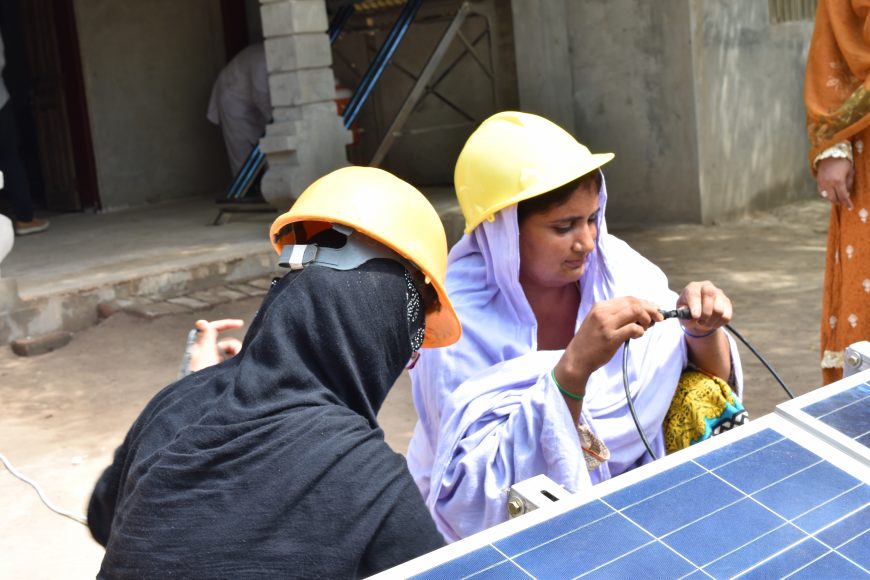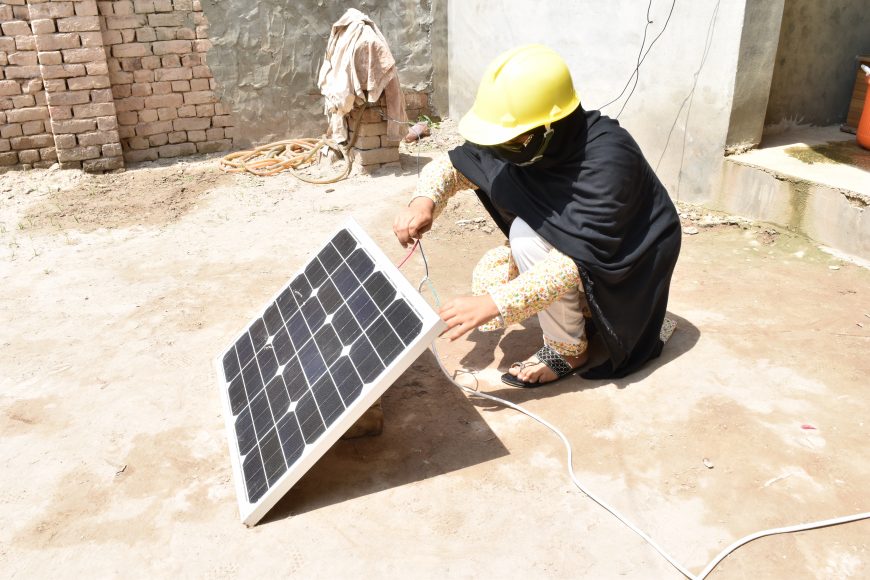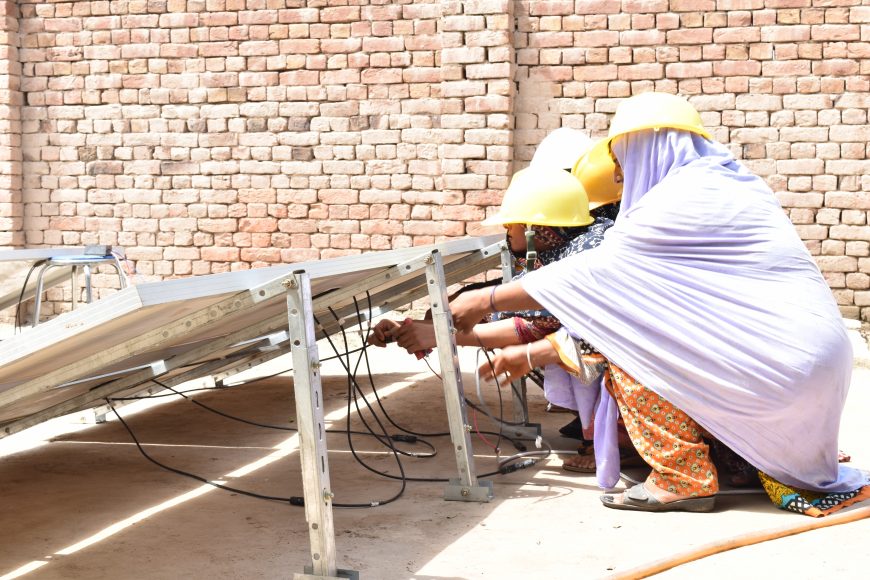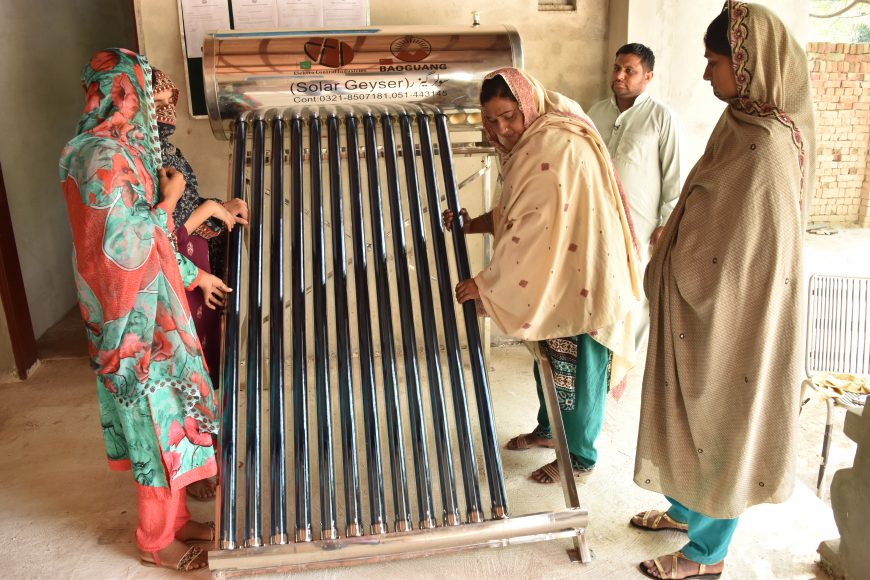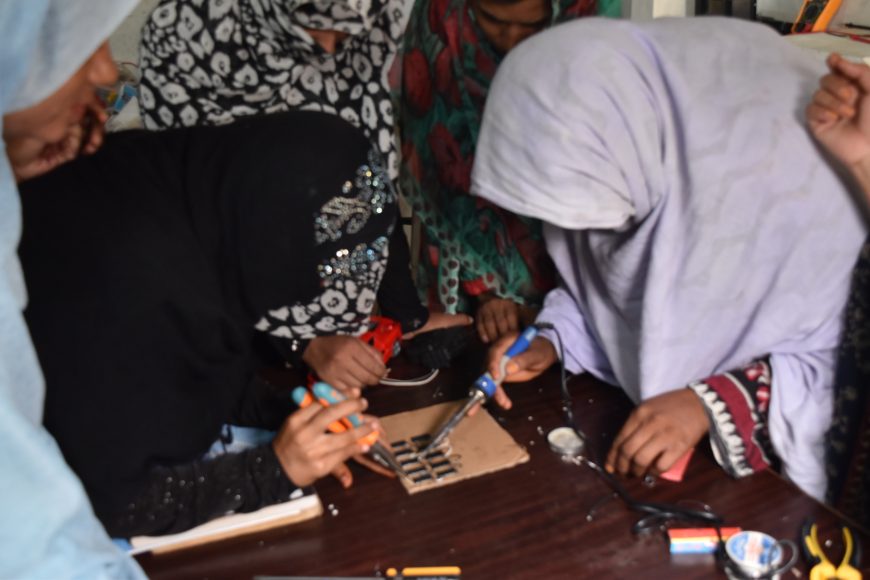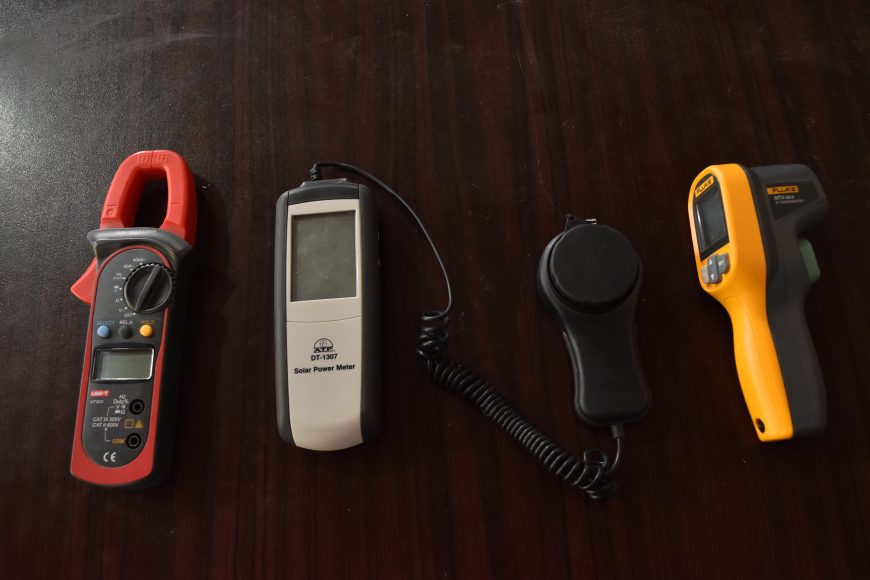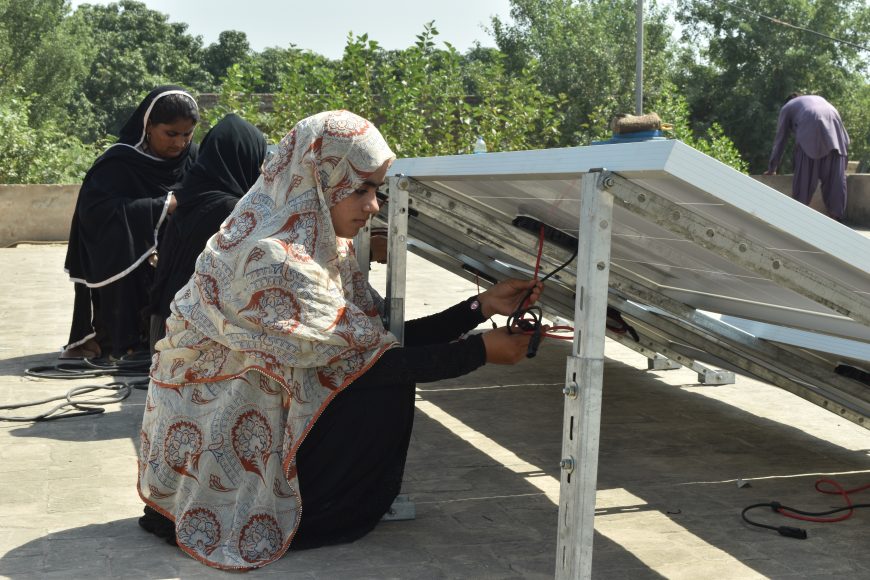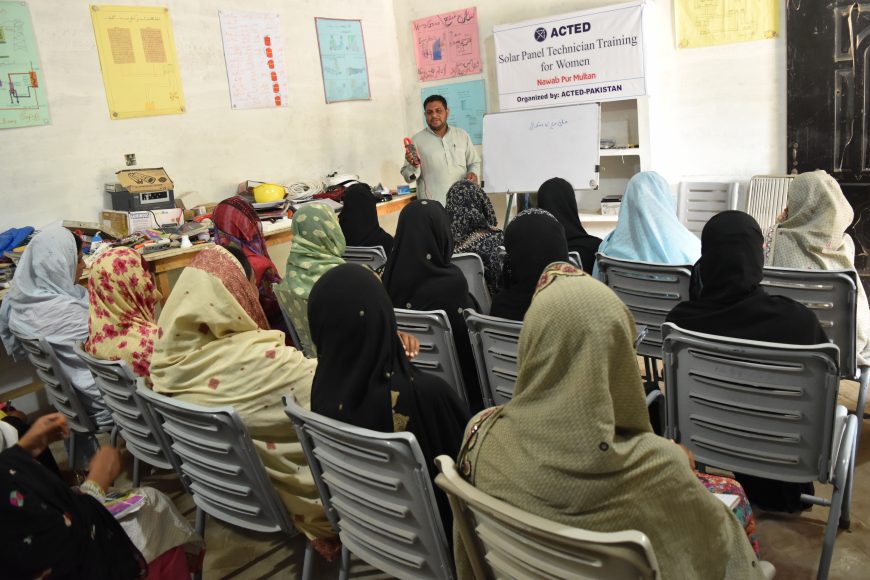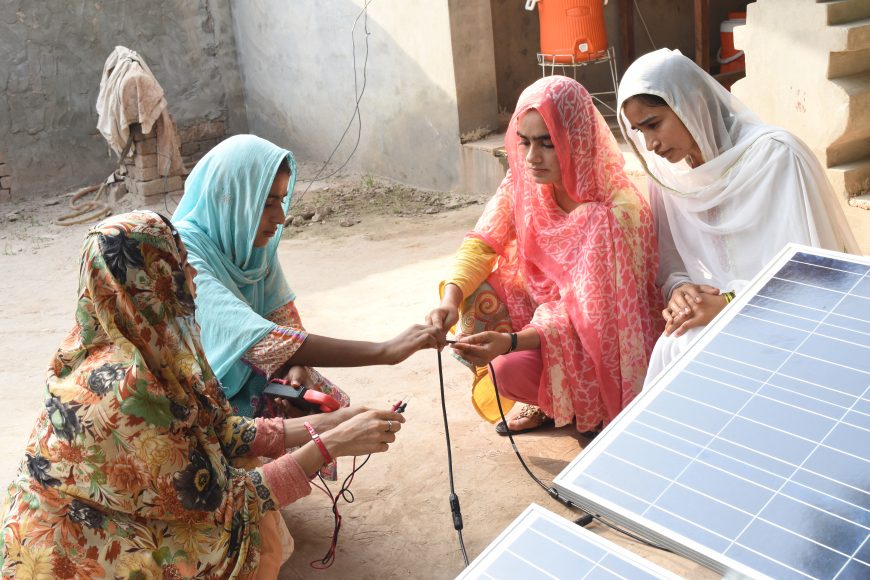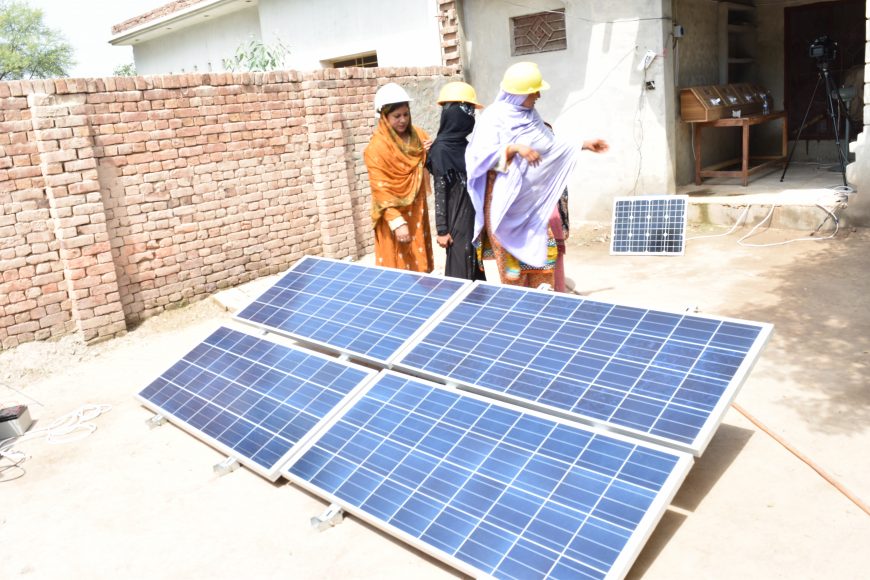ACTED Pakistan launched a pilot project to promote sustainable solutions for women’s empowerment, through trainings in a not so traditional sector for Pakistani women: solar energy. With support from the Asian Development Bank (ADB), ACTED thus trained 54 women in Multan, Punjab, as solar technicians, for the first time in Pakistan. 18 of the recent graduates have secured employment in the solar energy sector thus far.
Multan village faces severe energy shortages, with no access to electricity for up to 20 hours per day, and very hot temperatures. This, coupled with very low participation of women in formal employment, contributes to poor socio-economic development.
While Multan has a large market demand and potential for solar energy, it lacks skilled solar technicians to meet this demand and support the spread of solar energy. ACTED with ADB are committed to changing this. How? By training women as solar technicians. The aim is to contribute to meeting the energy demand gap, and at the same time, open up a wide range of opportunities for women, both of which contribute to driving real socio-economic change.
The energy sector is considered a non-traditional profession for women in Pakistan – a sector in which women are not trained or engaged. When the now graduates first told their families of their intention to participate in ACTED’s solar training, one of the first questions they were asked was “…but how can women go on roofs? Go outside alone for training and work?”
In a small village in Multan where women are often not allowed to leave their houses, these women began travelling longer distances to reach the training sites. With time, the community started accepting the changing role of women and support for their training began to increase. Trainings were not only limited to solar technology but also focused on entrepreneurship or leadership.
Since graduating, over 30% of trainees are employed in the solar sector. The training not only provided women with new and better opportunities, but they found that their new skills could also help their family and community with increased energy access. Independence is the key outcome of this training – with their new skills women no longer have to rely on men to do repairs at home. One of the graduate’s mother shared that “my daughter is now my son”. Moreover, these women can now share financial responsibilities and earn for themselves. Trainees believe that they can inspire other women to learn and achieve more.
To overcome the many challenges, what was key for ACTED was the support of the community - having the community mobilized, involved and ensuring that families and communities had ownership of what was being done
Nazia is a 37-year-old mother of five. She belongs to a community where some members believe girls’ education is not a priority and early marriages are common. Nazia went to school until the 12th grade. She always wanted to financially help and support her family. Before the solar panel training, she used to teach in a vocational centre and earned PKR 2,000 per month. Initially, her husband refused to allow her to take part in the ACTED training, saying solar energy has been, and continues to be, a male-dominated field, and that he would not allow her to work with males. Nazia was able to finally convince not only her husband, but also motivate her friends and community members of the benefits of the training. She supported and advocated for herself and eight other young women to be admitted to the training. After successfully completing the training, Nazia received an offer from a textile industry to work as a solar panel supervisor. Her first salary was PKR 18,000.
I was very happy when I received my first salary. It’s the highest amount that I ever received against my work. I feel that women can do anything
